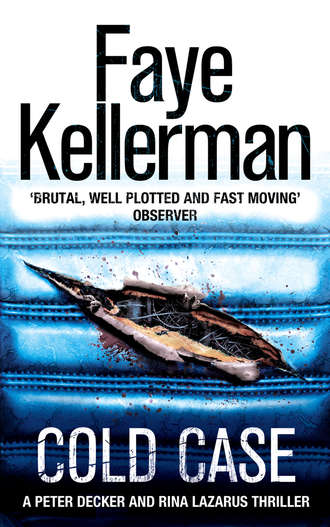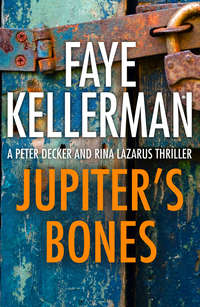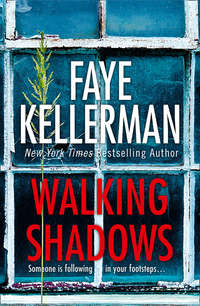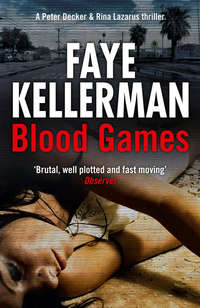
Полная версия
Cold Case
Melinda would have none of that. She knew that if Ben had gotten waylaid, he would have called on the car phone. That's what the damn thing was for. Emergencies.
At eleven-thirty that evening, the boys knocked on the bedroom door and asked why their mother had been locked in her bedroom for the past hour and a half. Not wanting to alarm them, Melinda said she was helping a friend in crisis.
“Where's Dad?” asked the youngest.
“Out helping someone else.”
The sons had no problem believing the story. Ben was always helping someone.
Melinda told her sons to go to bed and began making more phone calls. An hour later, when Melinda still hadn't heard from Ben, her closest friends came over to stay with her until this ordeal resolved. Their corresponding husbands had been sent out to look for Ben and/or his car.
The dreaded call came in at three-thirty in the morning. Ben Little's Mercedes had been spotted—the sole vehicle in a paved lot at Clearwater Park. The police had been called. Two squad cars eventually arrived at the location.
The interior of the Mercedes was empty and there was no sign of Ben anywhere. As the group decided on their next move, a particularly alert officer noticed that the back of the Benz was sagging, and something was dripping from the rear of the car. Gloving up, one of the uniforms fiddled with the lock until the trunk popped open.
Bennett Alston Little was fully clothed. His hands and feet had been tightly bound by generic shoelaces, and a blindfold had been placed over his eyes. He had been shot three times in the back of the head.
Again Melinda found herself talking to the police.
This time they had taken her very seriously.
THE FIRST THING Decker did was sort through photographs. In cases where he wasn't the original primary detective, he liked to have clear mental images. The premortem snapshots showed that Ben Little had been a very handsome man: sharp light eyes, a wide, bright smile, a strong chin, and an athletic build. The file contained two head shots and one with Ben and his family.
In contrast, the postmortem shots showed the hapless teacher in the fetal position with his knees bent and touching his forehead—an odd position to take after death. Ben's head was resting in a big pool of blood. Decker continued to read the crime scene report until he found what he was looking for. Several bullet shells had been found inside the trunk, which probably meant that the trunk was the original crime scene. Ben had been living when he had been placed inside and had instinctively curled up in a defensive position. Then he had been executed.
There was something otherworldly about reading original case notes. It transformed a corpse into a living, breathing human being. The two original homicide investigators—Arnold Lamar and Calvin Vitton—seemed to have worked hard, and the file was complete. The resurrection of Ben Little would demand that Decker have a long chat with Lamar and Vitton, but he wanted to form his own opinions first.
Slowly, Little emerged as a complete and complex person. He had his idiosyncrasies—knuckle cracking, a braying laugh, and compulsive list making—but he didn't seem to have any overt or dangerous vices. According to Melinda Little, her husband was a man of boundless energy, involved with the school, with the faculty, with the troubled students, with the honor students, with community clubs and civic duties, and—not to be neglected—with his family. Once in a blue moon, he'd wear out and come down with a cold or flu, and when this happened, Ben reverted, “as most men do, to a complete baby.”
Melinda claimed that she was more than happy to wait on him hand and foot, to give back because he was always giving to others. As far as she knew, there were no other women.
“When would he have time?”
He was always leaving her schedules, addresses, and phone numbers of his meetings in case of an emergency. And the few times she had to locate him, he was always where he said he would be.
He didn't drink, and he didn't take drugs. They had money in the bank, a retirement plan, life insurance, and college plans for both the boys. If Ben was spending money on a vice, he wasn't taking anything out of their savings account. The house didn't have a secret second mortgage, the car payments were timely, there was always money for birthday and Christmas presents, and he and Melinda always made a point to get away alone at least once a year. Ben was kind and thoughtful, and if he had one fault, it was his overextension. A few times, he had missed the boys' playoff games and a couple of their school plays, but wasn't that the case with most working husbands?
When pressed, Melinda admitted that Ben had occasional down periods. There had been a student who had died in a car accident, another who died in an overdose. A promising girl had gotten pregnant. Those kinds of things made him blue, but his favored way of coping was to throw himself into another project. He didn't dwell on what was out of his control.
At the time of Ben's death, his sons, Nicolas Frank and Jared Eliot, had been fifteen and thirteen, respectively. They'd be thirty and twenty-eight by now. Decker wondered about the boys' perceptions now that they were adults. They needed to be interviewed.
By the time Decker was done with the file, it was three in the morning. His eyes were shot, his back hurt, and his shoulders felt the crushing weight of obligation. He tiptoed into his bedroom and slipped under the covers of his bed, taking precautions not to wake up his wife. As soon as Rina felt the shifting of the mattress, she nestled closer to her husband.
“Everything okay?” she asked.
“Fine.”
“Love you.”
“Love you, too.” Decker was exhausted, but even so it took him a little time to fall asleep. His dreams were disturbing, but when he woke up the next morning, he couldn't remember them, only a hollowness somewhere in the recesses of his heart.
CHAPTER 4
TOOLING THROUGH THE Santa Monica canyons with the windows opened provided Decker with a blast of misty brine in his face, a welcome change from the hotter and drier climate of his work and residence. Here in the Palisades was the California dream: multimillion-dollar houses cut into rocky hillsides with landscaping that was far too green to thrive without the help of additional irrigation. Towering eucalyptus and ficus stood like sentries on either side of the asphalt. The sun was breaking through the fog, patches of cobalt peeking through the gray clouds. The temperature was mild, and at ten in the morning, the day was shaping up to be a good one.
Decker pushed his hunk of junk Crown Vic upward, straining with each twist and turn of the road. The address put him on the top ledge of a prominence where parking was limited but at least the street was flat. The house that corresponded to the numbers was modern, fashioned from wood, glass, and concrete.
Melinda Little Warren answered the door before he even rang the bell. She invited him in and offered him a seat on a white sailcloth sofa. No small talk; the woman was all business.
“After all these years … why now?” Melinda wanted to know. Decker gave the question some thought while looking out the window at a commanding view of the Pacific blue. “I could tell you it's because your late husband, Ben, was a good man and the open case has always bothered a lot of people. And that would be true. But the real reason is someone offered LAPD a big endowment if the case gets solved.”
The woman must have been in her midfifties, but she looked younger with her dark flashing eyes, a mane of blond hair, and legs that wouldn't quit. She wore olive drab capri pants and a white linen blouse and had sandals on her feet.
“It's always about money, isn't it?” She raked long fingernails through miles of ash-colored tresses. “I suppose I should have thought about that myself. Of course, I did hire a private detective after the case went cold. It cost me a lot of money and a lot of heartache.”
Taking out a note pad and a pencil, Decker said, “Did he have any success?”
“Certainly nothing that cracked the case.”
“Do you remember his name?”
“Phil Shriner. I haven't talked to him in years.”
“I'll check him out.”
“Fine if you do, fine if you don't.” She shook her head. “When I think about what Mike took on when he married me … my rock-bottom finances, and my needy boys … admiration for the man just grows logarithmically.”
Mike was Michael K. Warren of Warren Communications. His techno specialty was voice activation. He and Melinda had lived in this piece of paradise for ten years. The interior had natural wood floors, a two-story fireplace, and walls of glass. The furnishings were white and spare, but the place didn't blow a frosty attitude. Maybe it was all the knickknacks—the tchotchkes, as Rina would say.
“Logarithmically,” Decker said. “You must have been a math teacher?”
She smiled. “And you must be a detective.”
“That's how Ben and you met.”
“Right again.” Her eyes misted. “I've had so much misfortune in my life, but I've also been overly fortunate in the relationship department. I guess you can't have it all.”
Decker wondered what her other misfortunes were.
Melinda said, “May I ask who offered to donate the money?”
“Genoa Greeves. She's the CEO of Timespace.”
“I've heard of Timespace. What was her connection to Ben?”
“She was his student in the early eighties. She describes herself as a typical geek, and according to her, your husband was the only person other than her parents who ever gave her a word of encouragement. Smart people have long memories.”
She raised an eyebrow and said nothing.
“Do you remember her?” Decker asked.
“Not at all, but her words don't surprise me. Ben was always doing things for other people. I've never met a more altruistic man in my entire life. Sometimes I almost wish I had discovered a drug habit or a mistress. It would have made him more human. By now, the man has reached Godlike stature in my eyes. Everyone falls short. Although I adore Mike, he can never …” Tears rolled down her cheeks. “I'm sorry. This is very painful.”
“I'm sure it is, but if I'm going to do this case correctly, I have to start from the beginning.”
She dabbed her tears with a Kleenex. “I'm afraid I don't have anything new to tell.”
“It would be helpful if you went over the incident for me.”
A heavy sigh. “Why not? I've only told the story about a million times. Ben said he'd be home around seven. When he wasn't home by ten, I started to worry. I got in the car and went down to Civic Auditorium, trying to find someone from the meeting. Everyone was gone. I drove back home and called the police. They told me to call back in forty-eight hours. A grown man missing is no big deal.”
“Do you remember who you spoke to on the phone?”
“Wendell Festes. He wound up apologizing to me for his flippant attitude, but then started saying things like ‘you gotta understand what usually happens.’” Melinda clenched her teeth. “I really didn't give a damn about what usually happens. The man was rude, and I told the captain that when I spoke to him.”
Decker nodded. “So what did you do after speaking to Festes?”
“A few of my friends came over to the house to keep me company. Their husbands went out searching for Ben. They found his car and called the police, and the police found Ben.” She sat down on a leather club chair and made a swipe at the tears in her eyes. “That's really all I can recall … I'm sorry.”
“What do you think might have happened that night?” Decker asked.
Melinda shook her head. “I thought about it endlessly for years. His car was all alone at Clearwater Park. Maybe he got a last-minute phone call and was meeting someone there, although his car phone records didn't indicate that. But he could have made a call from a phone booth. The cell phones back then weren't reliable.”
“Who would he have met?”
“If he was meeting anyone, it was a student in trouble. I suggested that to the detectives at the time, but that went nowhere.”
“What do you mean?”
“You know how teenagers are, especially the boys. Risk takers. They do stupid stuff and usually get caught. Doing something idiotic doesn't mean that the kid is a sociopath. Ben was their best advocate. He went the extra mile for them the first time.”
“And the second time?”
“Their pleas fell on deaf ears. Ben had a sense of fairness and justice. If you didn't prove yourself to be trustworthy, you didn't get trusted.”
“So it is possible that Ben might have angered the repeat offenders.”
“The chronic troublemakers would have gotten expelled, anyway, regardless of what Ben might have told the administration. You can't sell pot continually to your fellow students and expect not to be expelled.”
“Do you have a specific kid in mind?”
“Darnell Arlington … a real charmer. One of the few kids who fooled Ben in a big way, but I must tell you, the police checked him out thoroughly. Darnell had moved to Ohio to live with his grandmother. The night of Ben's murder, he was playing in a basketball game at the local high school. About a hundred people saw him.
“From what I was led to believe, Darnell was turning his life around. His grandmother was a no-nonsense person. But check him out if you want.”
“Do you remember any other wayward students?”
“Not specifically, but there could have been others. I do remember Ben being upset about Darnell even after he moved. For some reason, the kid tugged at his heartstrings.”
“Did Darnell ever come to the house?”
“No, not on your life. Ben kept his students away from his family. He never gave out his home phone number or his car phone number.”
“What about his pager?”
“From what I recall, no one had paged Ben that evening.”
Her memory was correct. No activity was recorded on Ben's pager on the evening of his demise. Still, Decker didn't have Ben's pager records for the previous morning and afternoon. It was possible that someone had paged him earlier in the day and Ben used a public phone to return the call that evening. Maybe a hasty meeting was set up. That would explain why Ben was at Clearwater Park, but it wouldn't shed any light on why Ben hadn't called his wife.
“Was Ben familiar with Clearwater Park?”
“We'd been there before for cookouts when the boys were little.”
“So Ben had driven the roads around that area before.”
“Why do you ask?”
“If you were going to Clearwater Park from Civic Auditorium, you'd have to take some small roads and at night. If Ben wasn't familiar with the park, it would indicate to me that he was driven there by his abductors. If he knew the park well, maybe he was meeting someone.”
“We'd been there a few times.
That's all I can tell you.” She shrugged.
“The primary detectives interviewed scores of people, including quite a few students. What did you think of the detectives?”
“That's an odd question.”
Decker didn't respond.
“Arnie Lamar and Cal Vitton.” She smiled, but it lacked mirth. “I suppose they were nice enough; they just didn't get anywhere. It was always Arnie's contention that it was a carjacking. That didn't make sense to me.”
“How so?”
“First of all, Ben wasn't a fool. If someone wanted the car, he would have handed over the keys. The other option is that they stole the car and purposely put Ben in the trunk while they went on a joyride.” She made a face. “I don't see kids driving a stolen car with a dead man in the trunk.”
“There's a case in Hollywood right now that's similar to Ben's case: a body was discovered in the trunk of his Mercedes. Two teens are currently in custody.”
Melinda's hands flew to her mouth. “Do you think they're connected?”
“The boys that were arrested weren't even alive when Ben was murdered,” Decker said. “It's the boys' contention that they didn't know the body was in the trunk when they stole the car for a joyride. But that would be the logical thing to say. The victim's name was Primo Ekerling. Does the name sound familiar?”
She thought a moment. “No … no, not at all.”
“He was around forty. The papers listed him as an in de pen dent music producer and an entrepreneur.”
“That's L.A. speak for a slacker.”
“I must admit that nonspecific occupations tweak my antennas. But the case isn't mine, and Hollywood has plenty of well-trained homicide detectives. I'm sure they have their reasons for arresting the punks.”
“I'm sure they do.”
“Still, now that I've been assigned your husband's case, I'd like to know more about the Hollywood carjacking. If I'm going to get anywhere, I can't just cover old ground.”
“I agree.”
“I'm glad you do because there were people who were not interviewed the first time around that I'd like to talk to. Your sons, for instance.”
“My boys?” Melinda was taken aback. “They were just kids.”
“Kids have memories, Mrs. Warren. They see things, they hear things, they experience things. Oftentimes, they won't volunteer any information because that road has gotten them into trouble before. But many times if you ask them a question pointblank, they're not likely to lie. Your sons are adults now, so I don't need your permission to contact them. However, it would help if I had your cooperation.”
Her mouth frowned although her forehead remained smooth— Botox. “Let me call them up and get back to you. I'm sure they won't mind talking. Ten years of therapy has taught them how to talk to anyone.”
CHAPTER 5
WHEN HOMICIDE DETECTIVES were a hair shy of a solve, the last thing they needed was a hotshot from some other substation messing around with their cases. Two similar felonies fifteen years apart did not a criminal pattern make, and while Decker had no intention of gumming up anyone's finely oiled conviction machine, he did feel it was incumbent to review the files of the recent Hollywood carjacking/homicide, just in case. To make the cold call to the detectives was an unpleasant prospect.
Lucky for him that he had an in, and that brought a smile to his face. He had done umpteen favors for his daughter and that was to be expected because he was the parent. This little assignment would give Cindy a chance to reciprocate
From the winding roads of Sunset, Decker hooked onto the 405 heading north into his home turf of the San Fernando Valley. Morning clouds had given way to full sun, necessitating air-conditioning. Although the car was old, it valiantly sputtered a stream of Freon-laden air, which felt good on Decker's sweaty face. He loosened his tie and waited for phone reception as the Vic chugged through the mountain pass. When he reached the top of the hill, he used his voice-activated earpiece to talk hands-free. Cindy picked up on the third ring.
“Are you busy?” he said without introduction.
“Just sitting down to a vegetarian club salad.”
Decker checked his watch. It was eleven-thirty. “Early lunch?”
“Joe's hungry and the timing works. What's up?”
“I'd like to talk to you for a few minutes. It would be helpful if you had some privacy.”
“Hold on.” Decker heard Cindy talking to her partner. Several moments later, she was back on the line. “Is everything okay?”
“Just fine. Did I make you nervous?”
“Of course you did. You never call me during working hours.”
“That's because the call is business. Sorry if I scared you. I need a favor, Cin.”
“A favor, huh?” A pause. “Well, now I know I've arrived.”
“Weren't you involved in the car recovery of the Primo Ekerling case?”
“Initially Joe and I were assigned to the case until we popped the trunk and discovered the body. Then it immediately went over to Homicide.”
“So the car was reported as stolen?”
“Yes, but the vehicle wasn't the main issue. Ekerling's girlfriend reported that he, along with the car, went missing. About a week later, a traffic officer was about to write a ticket on the Mercedes when he noticed that the car already had a ticket on the windshield. The car was parked on Prince right off Hollywood Boulevard.”
“That's a residential area, isn't it?”
“Yes, it is. The car was being ticketed because it was parked on the wrong side on a street cleaning day. The first ticket was for the same violation. The car had been sitting there for at least a week.”
“And no one called it in?”
“It was a brand-new Mercedes. I suppose it didn't look out of place. The miracle was that no one vandalized or stole it, especially with all the bars in the area. Lots of bars mean lots of drunks doing stupid things.”
“That is often the case.”
“Anyway, the officer ran the plates and the car came back hot. Joe and I caught the call. When we got to the location, we peeked inside the vehicle. Something just didn't look right. Just as important, something didn't smell right. Joe jimmied the lock on the trunk and the rest is history.”
“And no one complained about the smell?”
“It wasn't that strong, and you know how it is in L.A. No one really walks and you'd have to pass by to notice an odor.”
“Most of the gas and bloat was gone?”
“Most of it, yes, but we got a whiff of something funky as soon as we got close enough.”
“Was the body in the open or was it wrapped up in garbage bags?”
“It was curled up in the trunk.” A pause. “Daddy, I have to get back to my lunch or Joe's going to get suspicious. Can we talk about this later?”
“I need the file.”
“And you don't want to just call up Homicide and ask for it.”
“Exactly. They've got suspects in custody, and I don't want to inject something new unless there's good reason.”
There was a long pause. “We should talk later. I never fully bought into the carjacking/murder theory. How soon do you want it?”
“As soon as possible, but a day or two won't make a difference. Do you remember the name of Ekerling's girlfriend?”
“Marilyn Eustis. I'd like to hear the details of what you're working on. Can we meet for dinner?”
“Love to.”
“I'll call you up when I get the file and we'll have a date. How about Italian?”
“You get the file, princess, I'll take you anywhere you want. I'll even pay.”
“You always pay, Daddy.”
“I do, don't I.” Decker smiled. “See how much your father loves you?”
***
TAKING ON THE cold case didn't mean that Decker's paperwork didn't pile up. As soon as he hit the squad room, he became the lieutenant in charge and was bombarded with questions, comments, and complaints. Lucky for him he had a few genuine allies that he now considered close friends.
Marge Dunn in specific.
Dunn had worked for or with Decker for over twenty years, starting out as a rookie detective under his tutelage in Juvenile and Sex Crimes for the Foothill Division of the LAPD. He had brought Marge with him to Homicide in West Valley because of her insights and work ethic. A winning personality made her a gem among dross. The woman was tall and big boned with light brown hair that had grown blonder since her involvement with Will Barnes, a former Berkeley detective who had moved to Santa Barbara to be within commuting distance. It was wonderful to see Marge happy, not only from a friendship point of view but also because Marge worked better when she was in good spirits.
Who didn't?
Dunn had filtered out all the nonsense, leaving Decker with the nuts and bolts of what needed to be dealt with to successfully run the detective's squad room. She sat in his office as he rummaged through a forest's worth of phone messages.
She said, “FYI, I went over the list of the current faculty at North Valley High and found a few old-timers who remember Ben Little.”









